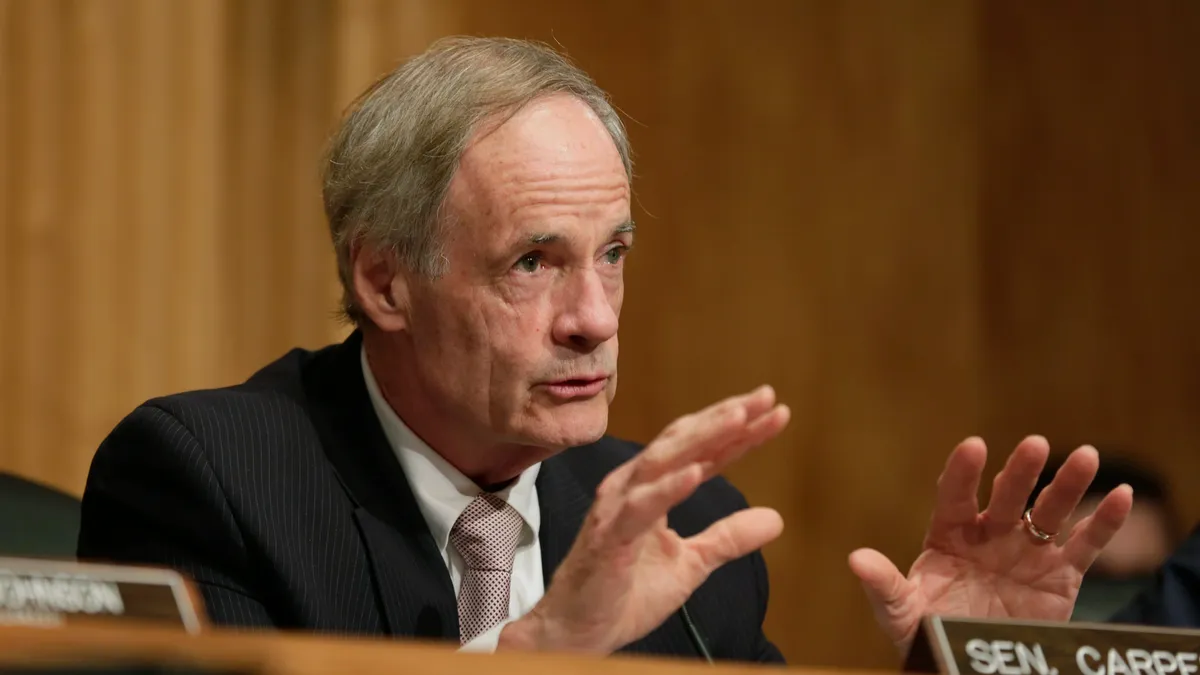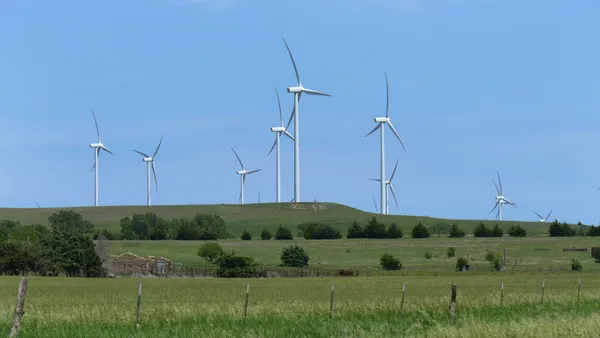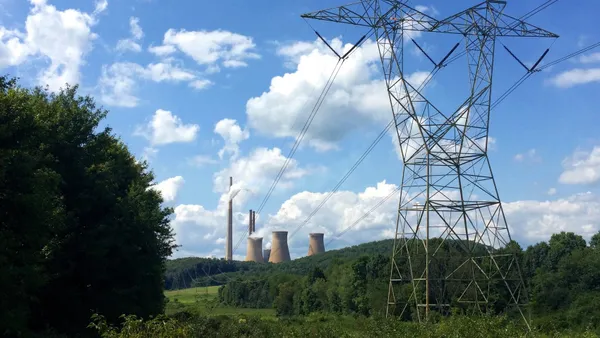Dive Brief:
- The U.S. Environmental Protection Agency sent an "entirely non-responsive letter" to a group of senators who want details about how the agency intends to regulate carbon if alters or rescinds the Clean Power Plan, according to the ranking member on the Senate Environment and Public Works Committee.
- 23 senators signed the April 7 letter, led by Sen. Tom Carper (D-DE), requesting details on EPA's carbon plans, the analysis informing the agency's decision and clarification of agency Administrator Scott Pruitt's views on climate change.
- But the agency responded only with a summary of an executive order issued by President Trump to review the plan and a collection of press releases and other documents, leading Carper to resubmit his request.
Dive Insight:
To be sure, Carper's initial letter to the EPA is an extensive list. The Delaware senator said he wanted, among other things, a list of "every coal mine and coal-fired plant that will remain open, be built, or be expanded as a result of the rescission of the Clean Power Plan."
Less onerous was the request from the almost-two dozen lawmakers for a schedule of how the EPA intends to approach changes to the Clean Power Plan. But Pruitt's response included none of those details, explaining just that the President intends to remove "costly burdens on coal-fired electric utilities, coal miners, and oil and gas producers."
“Because your letter does not respond to our requests for information and documents, I ask you again to respond in full so that Congress can perform its oversight responsibilities," Carper said in his follow-up letter. "I remind you that you committed to being responsive to oversight requests during your confirmation process.”
The Clean Power Plan, the signature climate rule of the Obama administration, aims to cut greenhouse gas emissions from power plants by 32% by 2030. President Trump, however, has targeted the rule and campaigned on a pledge to roll back regulations and restrictions on energy production.
If the EPA does not seek to replace the Clean Power Plan with another regulatory package, it could open up a legal fight over the agency's 2009 endangerment finding on carbon and the agency's responsibility to regulate the pollutant under the Clean Air Act.














